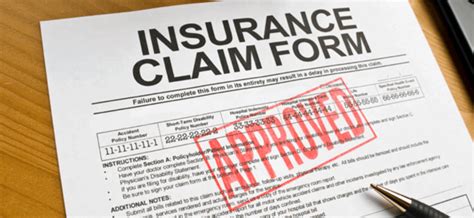Claiming Damages: A Guide to Someone Else's Home Insurance
Filing a claim against someone else's home insurance can be a complex process, fraught with potential misunderstandings and delays. This guide aims to simplify the process, outlining the steps involved and offering advice on maximizing your chances of a successful claim. Understanding your rights and responsibilities is crucial, whether you're dealing with property damage, personal injury, or liability issues.
What Types of Damages Can Be Claimed?
Many situations might require you to file a claim against someone else's homeowner's insurance. Common scenarios include:
- Property Damage: This could range from a minor scratch on a car parked on their property to extensive damage caused by a fallen tree or a fire originating on their property.
- Personal Injury: If you suffered injuries on their property due to negligence (e.g., a slip and fall on an icy walkway), you may be able to claim medical expenses, lost wages, and pain and suffering.
- Liability Claims: If someone on their property caused you damage or injury, their homeowner's insurance may cover the costs. For example, if their dog bit you, you could claim medical bills and potentially compensation for pain and suffering.
How Do I Start a Claim?
The first step is to gather evidence. This includes photos and videos of the damage, witness statements, medical reports (if applicable), and any police reports. Thorough documentation is essential to support your claim.
Next, contact the homeowner immediately. Inform them of the incident and the resulting damage. This step is critical, as it establishes communication and begins the process of resolving the issue. Keep detailed records of all communication, including dates, times, and the names of individuals involved.
Then, obtain the homeowner's insurance information. Once you have this information, contact their insurance company directly. They will guide you through the claims process and provide you with the necessary forms and instructions. Be prepared to provide detailed information about the incident, including the date, time, location, and a description of the damages or injuries.
What Information Will the Insurance Company Need?
Insurance companies will require comprehensive details to assess your claim. Be prepared to provide:
- Your contact information: Name, address, phone number, and email address.
- Details of the incident: A complete and accurate account of what happened.
- Documentation: Photos, videos, police reports, medical records, and repair estimates.
- Policy information: The homeowner's insurance policy number.
What If the Homeowner Refuses to Cooperate?
If the homeowner refuses to cooperate or provide their insurance information, you may need to seek legal advice. An attorney can help you navigate the legal aspects of the claim and potentially pursue legal action if necessary.
How Long Does the Claim Process Take?
The length of the claims process varies significantly depending on the complexity of the claim, the amount of damage, and the cooperation of all parties involved. Some claims may be resolved quickly, while others may take weeks or even months. Stay in regular contact with the insurance company to monitor the progress of your claim.
What If My Claim Is Denied?
If your claim is denied, review the reasons provided by the insurance company carefully. If you disagree with their decision, you may have the right to appeal. Consider consulting with an attorney to discuss your options and understand your legal rights.
What Are My Legal Recourses if the Claim is Denied or Unsatisfactory?
Your options include filing an appeal with the insurance company, pursuing mediation, or filing a lawsuit. Legal representation is often recommended in these scenarios.
Remember, claiming damages against someone else's home insurance requires patience, detailed documentation, and a clear understanding of the process. While it can be a challenging experience, following these guidelines can increase your chances of a successful and fair resolution. Always keep accurate records of all communications and documents relating to the claim. When in doubt, seek legal counsel.

